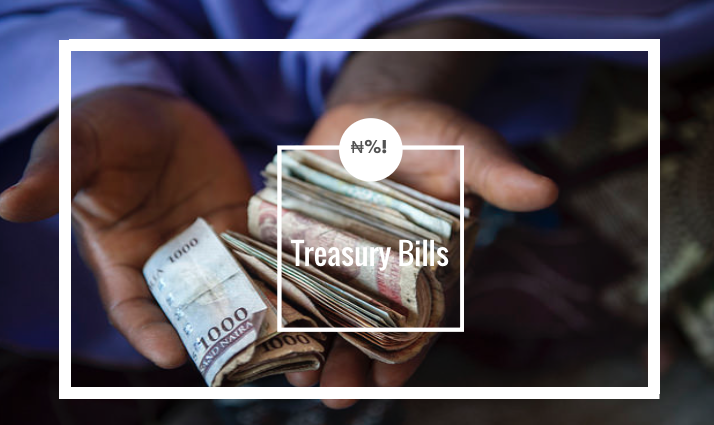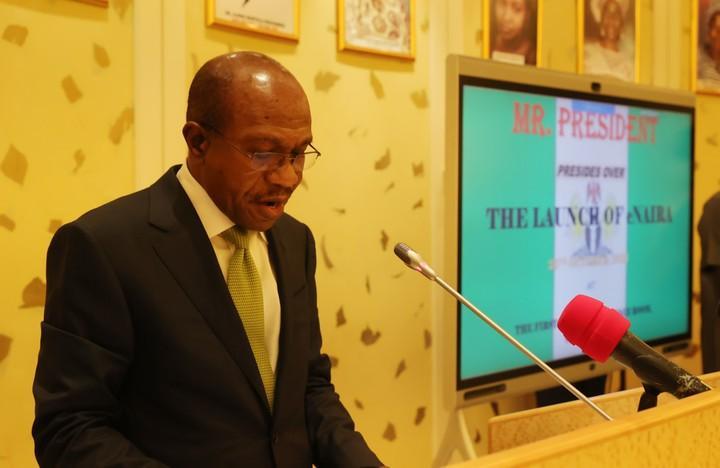- Treasury Bills Yield Drops to 15-month Low
The Debt Management Office (DMO) lowered the yields it offered at the treasury bill auction to raise N130 billion after investors submitted bids four times in excess of the amount it wanted to sell.
The DMO sold N129.77 billion in 91-day, 182-day and 364-day bills at the auction but received bids totalling N526.36 billion.
The interest rate on 364-day treasury bills may have triggered a conversation on interest rate direction for securities trading and pricing in Nigeria, according to an analyst at Ecobank Nigeria, KunleEzun said.
The interest rate performance on 364-day treasury bills rate was a reflection of recent market development relating to federal government decision to sell dollar-backed treasury bills and a possible US$5.5 billion Eurobond issuance in November 2017.
Owing to this, the 364-day treasury bills rate fell from a year to date high of 18.980 per cent in April to 15.7253 per cent in October 2017, thereby indicating 325 basis points drop over six months period.
The Treasury bills, which are issued more frequently in standard benchmarks: 91-day, 182- day and 364-day for refinancing purpose is about N4.211.85 trillion year-to date in 2017.
In addition, the Central Bank of Nigeria (CBN) has issued open market operations (OMO) bills to the tune of N4.722.34 trillion of various maturities at a weighted average rate of 18.32 per cent year to date in 2017.
“Interest rate on 364-day treasury bills is on a downward trend, but how low can it go? The CBN has kept policy interest rate high at 14 per cent to anchor inflation and possibly ensure positive real return on naira denominated government securities in a high inflationary environment.
“Interest rate on 364-day treasury bills will continue to drop, and possibly align with the policy interest rate of 14 per cent in fourth quarter 2017.. However, if the CBN decides to tweak its monetary policy stance to support economic growth, the interest rate might drop further down,” Ezun opined.
At the last auction, investors bid as much as 18 per centfor one-year debt and as low as the 13.25 per cent it paid for the three-month note.
The federal government is considering issuing a $2.5 billion Eurobond before the end of the year, the latest in a series of debt sales as the government seeks to fund a record budget for 2017.
The Director General of the Debt Management Office (DMO), Patience Oniha, disclosed this recently.
The federal government’s N7.44 trillion budget was meant to fuel growth after the economy pulled out of its first downturn in a quarter of a century in the second quarter of 2017. The mid-November issue would complement the $1.5 billion raised in Eurobond sales in February and March. She had said Nigeria needed to build stronger and responsive institutions that could support infrastructure agenda of the government. According to her, the government had proposed to channel new borrowings into capital investments instead of consumption.
Meanwhile, following expectations of improved economic stability in Nigeria, BlackRock Incorporated, an American global investment management corporation based in New York City, plans to take advantage of opportunities in Nigeria’s bond market as part of efforts to raise performance in its bond offerings.
BlackRockfavours Nigeria as well as oil producers such as Russia, Colombia and Kazakhstan, the company’s Sergio Trigo Paz, told Reuters in an interview, highlighting the West African country as one where he is planning to enter local markets.
“We are moving into some countries even deeper because we feel that the macro environment is much more stable than it was and likely to improve going forward,” Trigo Paz said at the New York headquarters of the world’s largest asset manager.
“With regard to sub-asset classes, local markets are still the place to be,” he added, noting that he expects the United States dollar to be less of a driver for local market returns.
Investors have been piling into Nigerian bonds due to high yields and stable currency for investors especially as an improving inflation outlook may mean that yields could start to decline.



 Naira4 weeks ago
Naira4 weeks ago


 Naira3 weeks ago
Naira3 weeks ago




 Naira3 weeks ago
Naira3 weeks ago




 Naira3 weeks ago
Naira3 weeks ago




 Naira2 weeks ago
Naira2 weeks ago
 Commodities3 weeks ago
Commodities3 weeks ago


 Sport Business4 weeks ago
Sport Business4 weeks ago


 News3 weeks ago
News3 weeks ago




















